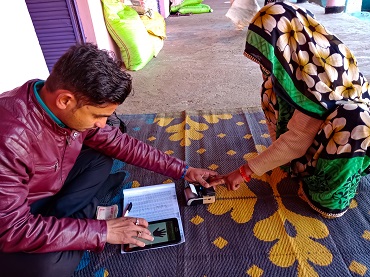Blog
SME Loan Repayment Holidays in the Age of COVID

A virtual roundtable summary
The COVID-19 pandemic has caused economic hardship to millions of SMEs. To help SMEs survive through this crisis, governments and financial institutions have been granting loan repayment holidays to their clients. These payment deferral programs can blur the lines between illiquid and insolvent borrowers, making credit risk assessments more challenging. Lengthy and large-scale loan repayment holidays may factor into financial institutions’ decisions on new lending and could have longer-term implications for the stability of the financial system.
As part of a virtual roundtable series on COVID-19 mitigation efforts, the SME Finance Forum hosted a virtual roundtable with Kamal Hingorani (Standard Chartered Bank) and Beatriz Uhagón Caillemer (BBVA) to discuss decisions around moratoriums and the long-term influence on SME finance.
The session started with Kamal sharing his experience regarding the SME loan relief programs across the markets that they operate in. Standard Chartered, witnessed the impact of the virus early in the year in their businesses in China and Hong Kong and by April and May, most of their businesses across Asia, Africa and the Middle East were affected. The initial phase of lockdown had the most significant impact on economies and within weeks of the lockdown, regulators came up with options for offering payment moratoriums to clients. A few countries continue to offer some kind of relief, with these programs now going into their second or third phases. Over time, the nature of relief offerings shifted. After an initial approach whereby, relief was offered to a broad range of clients, some regulators began to place greater emphasis on Bank’s targeting relief measures to clients with a higher impact. Additionally, there was a shift away from payment holidays to interest only options in a number of markets.
Kamal highlighted that regulators were approaching the crisis in different ways and as we move into the new year, we expect that regulators will continue to offer moratoriums but will make it more selective with the onus being on the client to demonstrate the extent of impact and justify the need for the relief.
Beatriz extended the conversation by weighing in on the heterogeneity of countries, sectors and clients. According to her, they have seen three types of clients: first, SMEs who saw an opportunity to get additional liquidity at a competitive price, second, clients like traders who needed liquidity or grace period for their expenses but had a proper future viability plan and third, SMEs whose weaknesses in future viability were revealed. They also found that regulators do not give the same amount of help to all the clients. In terms of addressing solvency and risk issues for SMEs, they have realized that government help, type of clients and sectors are crucial elements which need to be considered for adaptation or risk management.
Kamal agreed with Beatriz and said that the Bank used the industry type/sector in their risk assessment. Additionally, what helped was client engagement, early during the pandemic. They gathered information regarding their clients’ impact and ability to pay and tried to offer solutions meet their clients’ needs.
The big takeaway from the roundtable was the role of communication during the times of COVID. One of the useful tools for both the speakers was early communication with their clients regardless of the geographies. Both banks provided their RMs with tools to talk to their clients, even remotely. Beatriz stated that it was essential to gather information and open communication channels because all clients are different with differing needs. Keeping specific needs in mind, BBVA even organized workshops for clients who needed help with selling their products online and with digital transactions. Hence, aid was not limited to liquidity and loans but addressed other needs such as digitalization, which grew exponentially during COVID.
















































